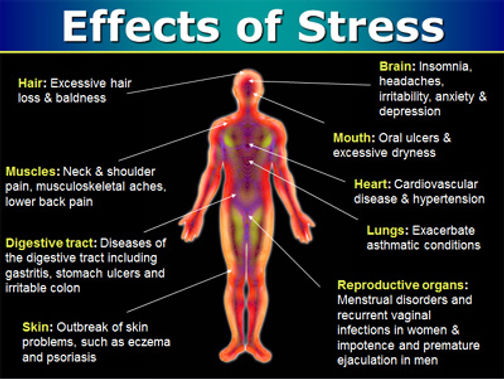Anxiety and skin problems
Can stress and anxiety affect your skin?
Feeling stressed lately? Maybe a little too stressed? Your skin might be trying to warn you.
As your body’s largest, most visible organ, the skin is constantly dropping clues about your overall health. And one of the most common causes of skin issues is stress. Your stress level could even be making some of your skin conditions worse.
So, what can you do? Let’s talk through some common stress-related skin issues, ways to decrease stress and when you should see a doctor.
Understanding your skin issues: What makes up the skin?
The skin is a combination of proteins, fat and water that operates as your first line of defense against heat, light, injury and infection. It regulates body temperature, produces vitamin D, and prevents germs and bacteria from entering your body. The skin itself is comprised of three layers: the epidermis (top layer), dermis (middle layer) and hypodermis (bottom or fatty layer).
The epidermis
Your epidermis is the layer of skin that you’re probably most familiar with – it’s the outermost layer you can feel and see. The epidermis is made of keratin and other proteins that stick together to form your skin, and it’s always making new skin cells to replace the ones you lose every day. This layer also contains melanin, the pigment that gives skin its color.
The dermis
This middle layer of the skin makes up 90% of your skin’s thickness. Known as the dermis, it contains collagen, which strengthens skin cells, and elastin, which keeps skin flexible. It also includes your hair follicles, blood vessels, nerve receptors, and oil and sweat glands.
The hypodermis
Your bottom layer of skin, the hypodermis, is comprised mostly of fat cells and collagen. It helps regulate temperature, protects your organs, and houses connective tissue that binds your skin to muscles and bone.
Can stress affect your skin?
Absolutely, stress can affect your skin in ways you may not expect. But why? What is it actually doing to you? Let’s start simple: Stress is your body’s response to challenges or pressure, and it can produce both an emotional and physical reaction.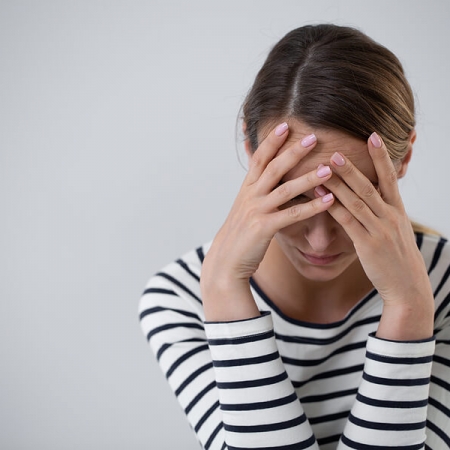 Getting close to a tight deadline at work? Stress. Coming up on a huge test at school? Stress.
Getting close to a tight deadline at work? Stress. Coming up on a huge test at school? Stress.
And believe it or not, stress isn’t always bad. It serves a biological function – think “fight or flight.” Stress sends a rush of adrenaline and cortisol from your brain to your body, which can increase your heart rate and sends more blood flowing to your organs. But when we start to experience too much stress in everyday life, our health can take a hit.
In fact, studies show that even mild stress can compromise the health of your skin, both causing and exacerbating a variety of conditions. This chemical response might even make your skin not only more reactive, but it can also make skin issues harder to heal.
Skin conditions caused by stress and anxiety
Anxiety can cause quite a few issues when it comes to your skin, such as stress rashes (hives) and excessive sweating. These conditions can be uncomfortable, sometimes itchy or painful, and may even impact how you feel about yourself.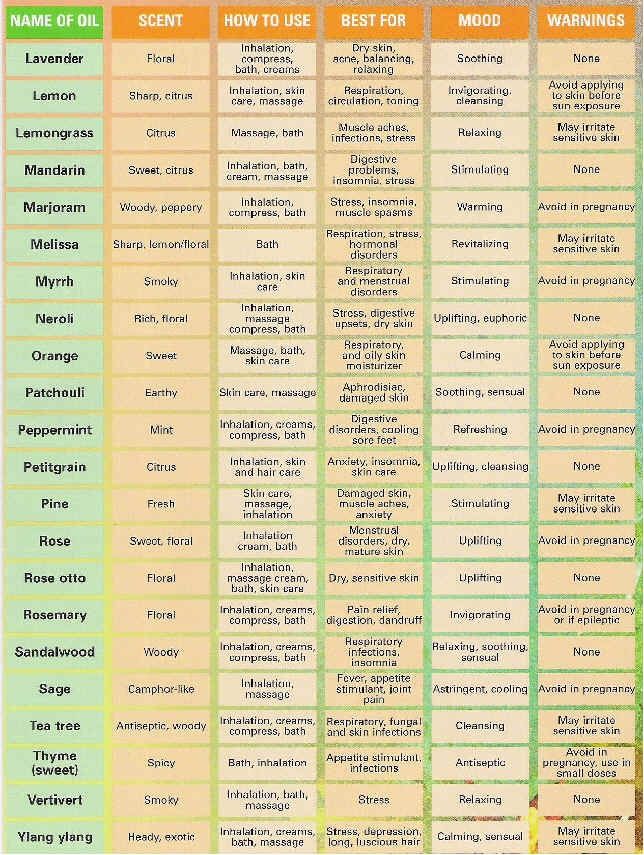 Here’s what you need to know about why they might be happening and what you can do.
Here’s what you need to know about why they might be happening and what you can do.
How to treat stress rashes (stress hives)
When you’re stressed, your body produces a flood of histamine, also known as the allergy chemical. This can make your skin respond as though it’s experiencing an allergic reaction, causing a stress rash made up of hives.
But what makes these different from regular hives and what do stress hives look like? These raised bumps (and sometimes large welts) can appear on the skin in both small and large patches, and they often itch or burn. Hives related to stress are typically not a sign of something life threatening and should not hinder your ability to breathe.
But the good news is that stress rashes tend to go away on their own, sometimes immediately or after a couple rounds of hives. Just make sure that your hives aren’t actually due to allergies. If you suspect your hives are an allergic reaction, it’s time to connect with your doctor.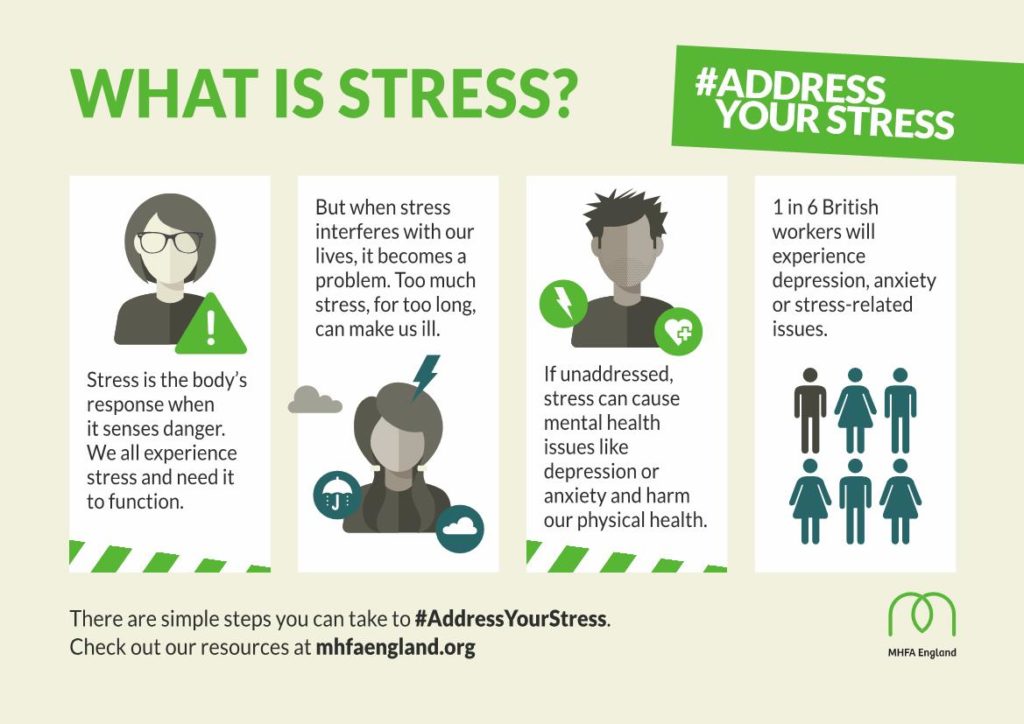
Chronic sweating due to stress
Many of us have been there, right? You get nervous or anxious, and the next thing you know, you’re sweating up a storm. It’s actually a really normal biological response. Emotion-induced sweat is created and excreted from the apocrine glands located in your scalp, groin and armpits. And this kind of sweat is denser and fattier than what you’d produce while you’re exercising. Learning to mitigate stress will help, of course, but if you want to feel more comfortable in the meantime, make sure to wear breathable clothing and try to keep the affected areas of your skin as well-ventilated as possible. Antiperspirant and regular showering are also important, as sweat can be a breeding ground for bacteria that can lead to infection.
Skin conditions that stress can make worse
It’s important to remember that while stress may not cause every type of skin issue, it can certainly worsen ones you’re predisposed to or problems you’re already dealing with.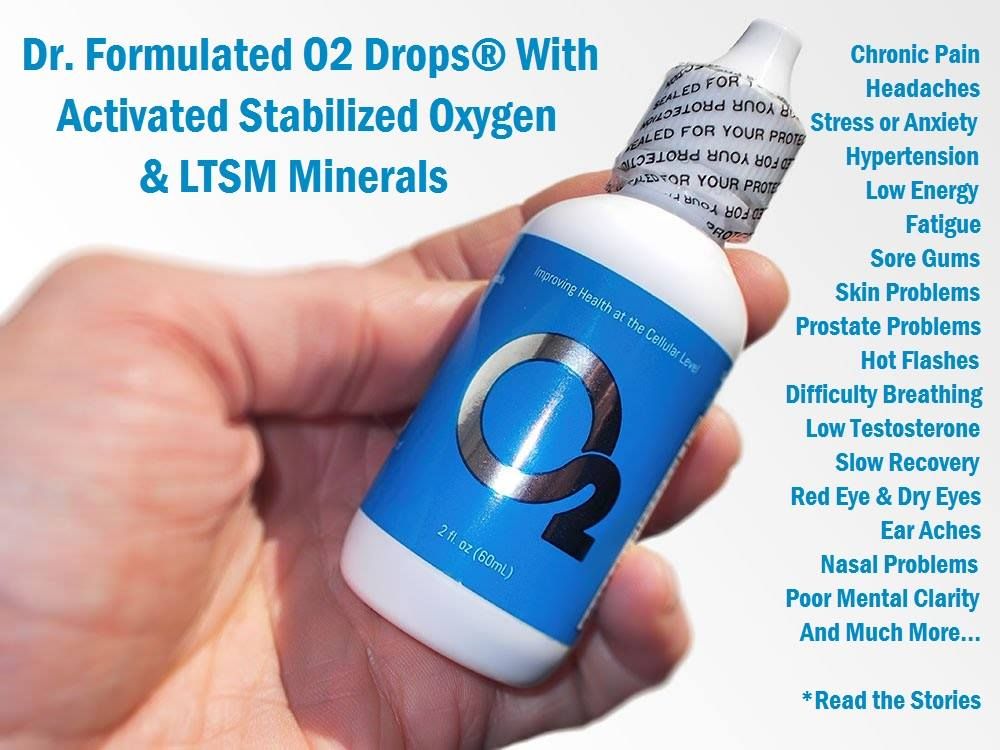 Too much stress can trigger autoimmune issues, and lead to flare-ups for conditions such as:
Too much stress can trigger autoimmune issues, and lead to flare-ups for conditions such as:
- Psoriasis
- Rosacea
- Eczema
- Alopecia
- Vitiligo
Stress breakouts and cortisol
It’s estimated that over 9% of the global population struggles with acne. And while it’s most common in teenagers and young adults, adult acne rates are on the rise. However, you don’t need to have clinical acne to suffer from the occasional stress breakout.
For a long time, medical professionals weren’t able to definitively pin down the relationship between stress and acne. But research done in the last decade suggests that when you’re anxious or stressed for prolonged periods, the body releases more cortisol. This can increase oil production and lead to acne. Your hormones and inflammation levels can also contribute – both things that are impacted by stress levels.
How to protect your skin from stress rashes and other issues
Knowing why your skin may be reacting to stress doesn’t really change the fact that you are stressed. But healthy lifestyle habits can go a long way in terms of managing stress levels and stress-induced skin conditions. Here are just a few things you can try.
But healthy lifestyle habits can go a long way in terms of managing stress levels and stress-induced skin conditions. Here are just a few things you can try.
Make sure you’re getting enough sleep
We know, we know – you probably hear this one all the time, but there’s a good reason for that. Sleep is a critical component of overall health, and it’s particularly important for your stress levels. According to the American Psychological Association, those who report lower stress levels tend to get more sleep than those reporting higher stress levels. Aim for anywhere between 7-9 hours of sleep each night, and make sure to establish a calming, reliable bedtime routine.
Adopt an anti-inflammatory diet
As we mentioned before, stress can increase cortisol production. Too much cortisol can cause inflammation, a big contributor to skin problems. But the good news is that you can help lower your cortisol levels with a healthy diet. Focus more on anti-inflammatory foods rich in vitamin B, magnesium and fatty acids, such as fish, whole grains, fruits and vegetables, and healthy fats.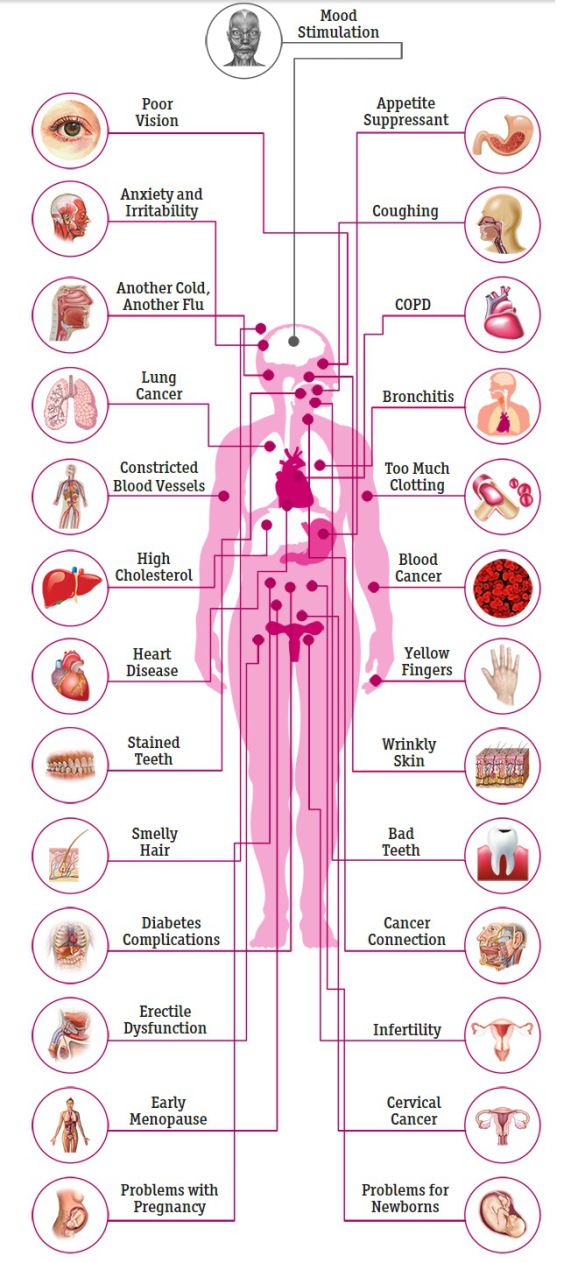
Avoid regular consumption of processed foods, especially those high in sugar or salt – unrefined foods are known inflammation instigators. Also, remember to drink plenty of water. Dehydration can cause stress and vice versa. Aim to drink a third of your body weight in ounces each day – so if you weigh 150 pounds, try drinking 50 ounces of water per day.
Get moving in ways that feel good
Regular exercise is one of the best stress busters around. It can lower stress hormone levels, like cortisol and adrenaline, and stimulate your endorphins. Exercise increases energy levels, and it gives you a chance to get out of your head and into your body – in other words, mindfulness.
If you’re not someone who often gets up and moving, remember that it’s okay to start slow. You can begin with something low impact like walking before looking into more organized methods of movement, such as strength training or aerobics.
Prioritize your mental health
Stress can have a huge impact on your mental health.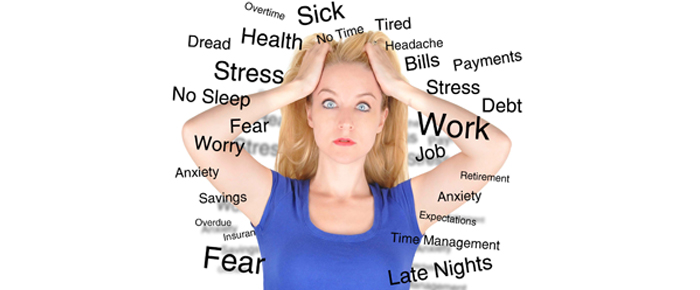 It’s completely normal, and you’re certainly not alone. If you’ve been struggling, it’s okay to need a little help. There are tons of mental health resources available to you both online and through your healthcare provider. A great first step is touching base with your primary care physician – they’ll be able to help you determine next steps and what will work best for you.
It’s completely normal, and you’re certainly not alone. If you’ve been struggling, it’s okay to need a little help. There are tons of mental health resources available to you both online and through your healthcare provider. A great first step is touching base with your primary care physician – they’ll be able to help you determine next steps and what will work best for you.
Experiment with stress management techniques
Remember, you may not be able to avoid stress, but you can change how you react to it. If you’re looking for things you can try right now to help you manage stress, try incorporating some stress management techniques into your daily lifestyle. We recommend trying out stress relief methods like meditation, guided imagery, deep breathing, yoga and journaling.
Create a regular skin care routine
Stress management is important, but so is regular skin care, right? Getting started can be more than a little overwhelming. There are so many products out on the market promising perfect skin and claiming to help with really specific issues, but what actually works?
The truth is that there’s no one answer, and general advice doesn’t account for the fact that everyone’s skin is different. You can do your own research, of course, but the best place to start is with your dermatologist. A professional will be able to help you assess your skin type and needs and use that information to plan a personalized routine.
You can do your own research, of course, but the best place to start is with your dermatologist. A professional will be able to help you assess your skin type and needs and use that information to plan a personalized routine.
See your doctor about stress breakouts and other skin issues
Do you have questions or concerns about a possible stress-related skin problem? Schedule an appointment with your primary care doctor, who can evaluate your condition, suggest treatment options or refer you to a dermatologist. If you don’t need a referral, you can also call to make an appointment directly with a dermatologist.
Looking for care immediately? Get 24/7 virtual care through Virtuwell online clinic, where you can be seen for a variety of skin conditions, such as acne, psoriasis, rashes and more.
Skin Conditions Caused by Stress and Anxiety
04-9-21 - Skincare Tips
Skin stress. Is there a connection?
Are you feeling tired, overwhelmed, short on time? Have you noticed dark circles or bags under your eyes? Maybe a new rash, some hair loss, or perhaps it feels as though your psoriasis is always flaring?
Heed your body’s warnings. There is a powerful connection between your skin and brain. Stress-related skin conditions are real and on the rise. Stress is well known to exacerbate acne, eczema, and psoriasis through the body’s inflammatory pathways.
There is a powerful connection between your skin and brain. Stress-related skin conditions are real and on the rise. Stress is well known to exacerbate acne, eczema, and psoriasis through the body’s inflammatory pathways.
Chronic stress can negatively impact your health in a variety of ways. Physiological changes can lead to high blood pressure, headaches, and fatigue. But stress can also affect the appearance of your hair, nails, and skin.
Stress can trigger psoriasis and eczema flares. If you’re plagued by adult acne, yep, it could be stress-related. Dry skin caused by stress is another sign something is off under the surface.
The good news is there is a lot in your control to help manage stress and skin conditions. Your dermatologist can offer various solutions that may include medical intervention, cosmetic treatments, or simply some self-pampering.
How stress affects your skin
Both short-term and long-term stress can trigger a variety of chemical and hormone responses in your body. When stressed, your body responds in a number of ways.
When stressed, your body responds in a number of ways.
- Your sympathetic nervous system revs up and releases hormones like adrenaline and cortisol.
- Elevated cortisol signals glands in your skin to make more oil
- As a result, your skin is more prone to acne outbreaks, clogged pores, and other skin problems.
- These automatic responses can cause inflammation, weight gain and increase your skin’s reactivity and sensitivity.
- Stress triggers inflammation, which can slow down digestion in the gut. High levels of stress can affect the bacteria in your gut and lead to a “leaky gut.”
- Stress impacts your immune system, affects your sleep, and can contribute to poor food choices
- Because the body thinks it’s under attack, stress aggravates autoimmune disorders and inflammatory conditions like eczema, psoriasis, and rosacea.
- Stress can trigger mood disorders, nervousness or anxiety, and increase nervous habits.
- You may inadvertently pick at scabs or acne, scratch your skin, or bite your fingernails
- Even small amounts of anxiety can send your body’s stress response into overdrive, resulting in the skin’s burning or itching.
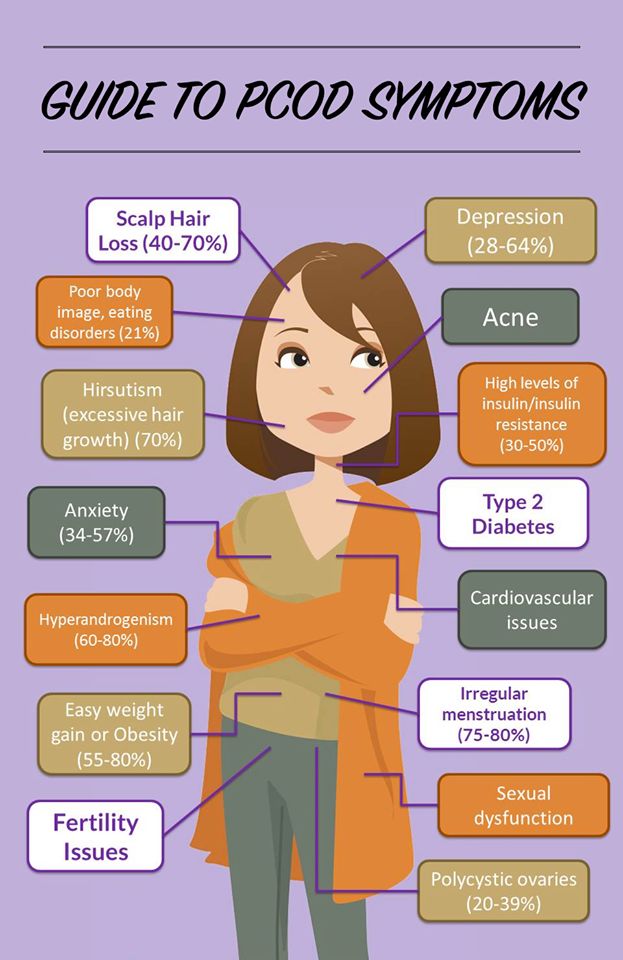
Signs of stress on your skin
Under stress, chronic skin conditions tend to flare up, making skin problems including acne worse. Signs and symptoms of stress-related skin conditions include:
- Acne and skin rashes
- Burning or itching skin
- Eczema, psoriasis, and rosacea flare-ups
- Hair loss or oilier hair
- Hives and red bumps
- Dandruff, redness, and flaking of the scalp
- Delayed wound healing
- Dermatitis
- Dry skin, hair, and nails
- Fever blisters and cold sores
- Fine lines and wrinkles, especially frown and forehead lines
- Nails that stop growing become brittle or peel
- Under-eye bags and dark circles
Stress often kicks off a negative feedback loop. If you’re stressed, you’re more likely to neglect self-care or stay awake at night ruminating. Perhaps you get lax on your exercise and skincare routines. Even skipping out on washing your face at night or drinking alcohol can further aggravate skin issues.
It’s no surprise that people with psoriasis and eczema suffer from higher levels of depression, anxiety, and negative feelings associated with their skin condition. If you’re prone to these conditions, you may be preoccupied with how your skin looks or try to cover up rashes and plaques with clothing and makeup. This often leaves people feeling on high alert for any sign of an impending flare or outbreak, resulting in more stress and self-esteem issues.
If this sounds like you, don’t fret. Help is here.
Follow these self-care tips for stress-related skin conditions.
- Stick to your skincare routine, even when you’re stressed. Keep it simple. Wash your face with a gentle cleanser morning and night, wear non-comedogenic moisturizer with sunscreen and avoid skipping prescription and non-prescription topical treatments. Setting a reminder on your phone is a helpful way of staying on task.
- Schedule regular exercise. Find something you enjoy doing, whether that’s cycling, hiking, or online group fitness classes.
 Add in some gentle yoga or tai chi that will surely help combat stress. It’s good for your skin and your overall well-being. Bonus: Those feel-good workout hormones will elevate your energy, mood, and outlook.
Add in some gentle yoga or tai chi that will surely help combat stress. It’s good for your skin and your overall well-being. Bonus: Those feel-good workout hormones will elevate your energy, mood, and outlook. - Practice regular stress management activities, including deep breathing, mindfulness, meditation, daily affirmations, and journaling.
- Be mindful of your diet. Avoid alcohol, nicotine, sweets and refined complex carbohydrates, highly processed foods, and known food allergens. Focus on eating a ‘rainbow’ of fruits and vegetables, lean protein, good fats, and antioxidant-rich foods such as avocado and berries.
- Take time for yourself to relax and unwind. Get your steps in by taking a nightly walk around the block or enjoy a calming oatmeal bath. Read a good book, listen to music or a compelling podcast, or splurge on a massage.
- Keep a regular sleep schedule. Stress can make you look tired and unwell, but so can lack of sleep.
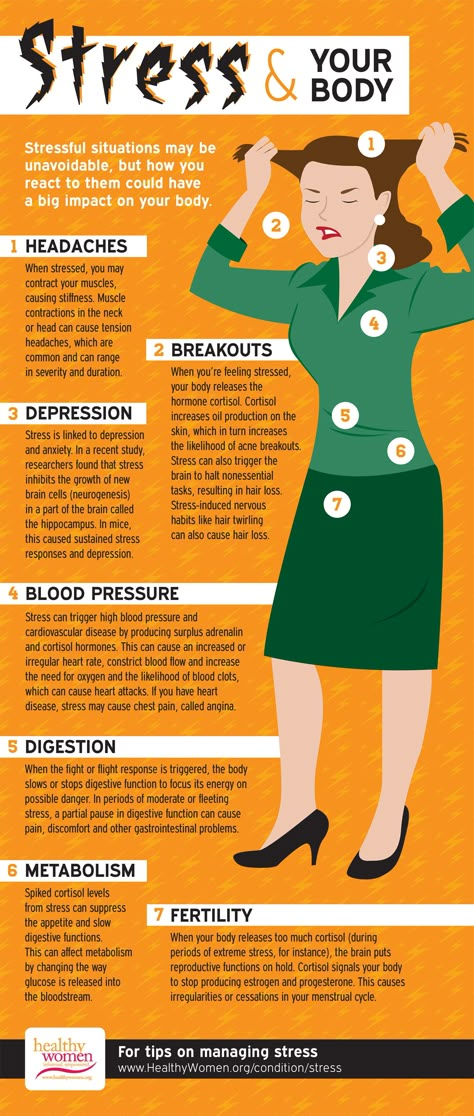 Proper sleep helps elevate mood, cognition and will help you cope with daily stressors all the better. Aim for 7-8 hours of uninterrupted sleep every night. Consider downloading a mediation or mindfulness app to help you unwind and unplug before bed. Turn off social media and your electronics an hour or two before bed.
Proper sleep helps elevate mood, cognition and will help you cope with daily stressors all the better. Aim for 7-8 hours of uninterrupted sleep every night. Consider downloading a mediation or mindfulness app to help you unwind and unplug before bed. Turn off social media and your electronics an hour or two before bed. - Stay hydrated. Drinking plenty of water helps flush toxins from the body and keeps your skin hydrated. Avoiding alcohol and excessive amounts of caffeine will help your state of hydration as well.
- Honor yourself and your commitments, but learn to say no and establish healthy boundaries. You don’t get extra points for checking e-mail 24/7 or volunteering for every carpool for the kids. Avoid overbooking or overextending yourself. This only creates additional stress. Make sure you find time for at least one thing you enjoy.
- Engage a trusted friend or find a therapist to talk to, especially if your mental health is suffering.
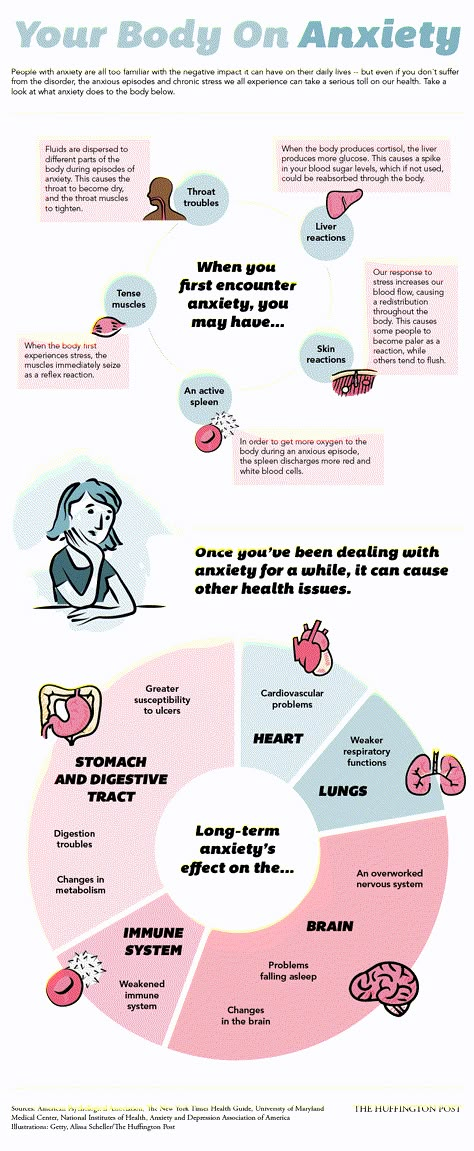 If you’re stressed about money, your marriage, or even your chronic skin condition, it never hurts to seek professional help. You may benefit from cognitive behavioral therapy and other stress-reduction techniques to help you cope during high-stress periods.
If you’re stressed about money, your marriage, or even your chronic skin condition, it never hurts to seek professional help. You may benefit from cognitive behavioral therapy and other stress-reduction techniques to help you cope during high-stress periods.
Medical treatment may be necessary
At-home remedies and self-care strategies can be a good first line of defense, but it may be time to consult your dermatologist if your skin problems persist. Stress-related skin conditions and outbreaks associated with psoriasis, rosacea, and eczema often require medical intervention.
If you’re struggling to pinpoint the cause of your skin issue, you can try tracking and recording symptoms in a diary. Contact your dermatologist if your skin doesn’t clear or worsens.
Your doctor may recommend:
- An individualized treatment plan including oral or topical medications.
- A gentle skincare routine with mild cleansers and noncomedogenic moisturizers free of fragrances and harsh additives
- Medicated creams or ointments, including topical corticosteroids and non-steroidal creams
- Prescription retinoids to help with breakouts.

- Strategies to help avoid scratching itchy skin, which may worsen your condition
- Advice on using cool compresses and ice packs to relieve swelling and itching.
- Particular combinations of over-the-counter medicines such as antihistamines help relieve symptoms.
- Journaling techniques that can help identify your triggers. Sources of stress are varied and can be environmental, emotional, financial, food-related, professional, physical, and psychological. Knowing your triggers will help avoid them.
The body’s stress response is systemic and can occur secondary to a number of insults. And just like there isn’t one treatment for stressed skin, there likely isn’t one single factor causing your symptoms. Taking steps to be more mindful of what makes you feel stressed out and anxious can help you manage or minimize triggers by finding productive ways to release stress.
By keeping stress at bay, you can better manage chronic skin conditions or those exacerbated by stress.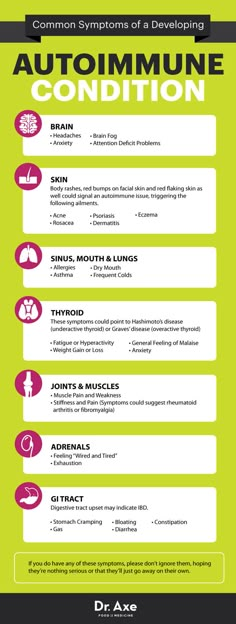 If you experience an unrelenting flare or rash, or your symptoms get worse, call your dermatologist. Skin rashes can often be diagnosed during a telehealth visit. You and your dermatologist can work together to improve the overall health of your skin.
If you experience an unrelenting flare or rash, or your symptoms get worse, call your dermatologist. Skin rashes can often be diagnosed during a telehealth visit. You and your dermatologist can work together to improve the overall health of your skin.
APDerm offers a variety of medical, cosmetic, and surgical dermatology services. Contact APDerm today if you are concerned about stress-related skin conditions. Our team can diagnose your skin issues and help create an effective treatment plan. We also offer cosmetic procedures that can revive stressed-out skin.
- twitter Tweet
- facebook Share
- pinterest Pin
The effects of chronic anxiety on the body - Empathy
Last time we found out that anxiety and fear are inventions of nature that served our ancestors for survival in the wild. Fear is the immediate activation of all body systems in order to fight back or run away from the enemy. Anxiety served as a means of prognosis - a signal of impending, probable danger.
You can see how animals react to gusts of wind, gathering clouds before a strong thunderstorm, storm. Catching such signals, the primitive man, like them, felt the impending threat, informed his fellow tribesmen about it and took simple actions: he hid in a shelter. After performing stereotypical actions, the anxiety subsided.
However, in modern realities, when confronted with novelty, upheavals and events that were not in the past experience, stereotypes strengthened by centuries remain out of work. A person has no way to regain a sense of security, relying on instincts. At the same time, the life of a modern person impresses with the scope and pace of the changes taking place. So essentially neutral signals are often recognized by the brain as threatening: reputation, social status, social norms, self-esteem and other individual personal values, the existence of which the primitive man did not even know.
And if a person's consciousness is unable to cope with irrational impulses, anxiety becomes uncontrollable, pathological character. This type of anxiety always needs the qualified attention of specialists - psychologists, psychiatrists, psychotherapists, because. sooner or later, if no help is provided, pathological anxiety will lead to damage to health - mental or somatic (bodily).
How is it connected
Intense anxiety is accompanied by an increase in the blood of stress hormones, adrenaline and cortisol. In addition, there is a chain of more subtle biochemical changes in the body. In different people, chronic, pathological anxiety causes malfunctions in the work of various organs according to the principle “ where it is thin, there it breaks ”: which organ system is more vulnerable, what heredity has to do with it, there are breakdowns in the first place.
Most common problems
Vegetative-vascular dystonia
Even in young healthy people, a long stay in a state of anxiety triggers a cascade of physiological abnormalities and symptoms, which for many years it was customary to combine the term " vegetative-vascular dystonia ".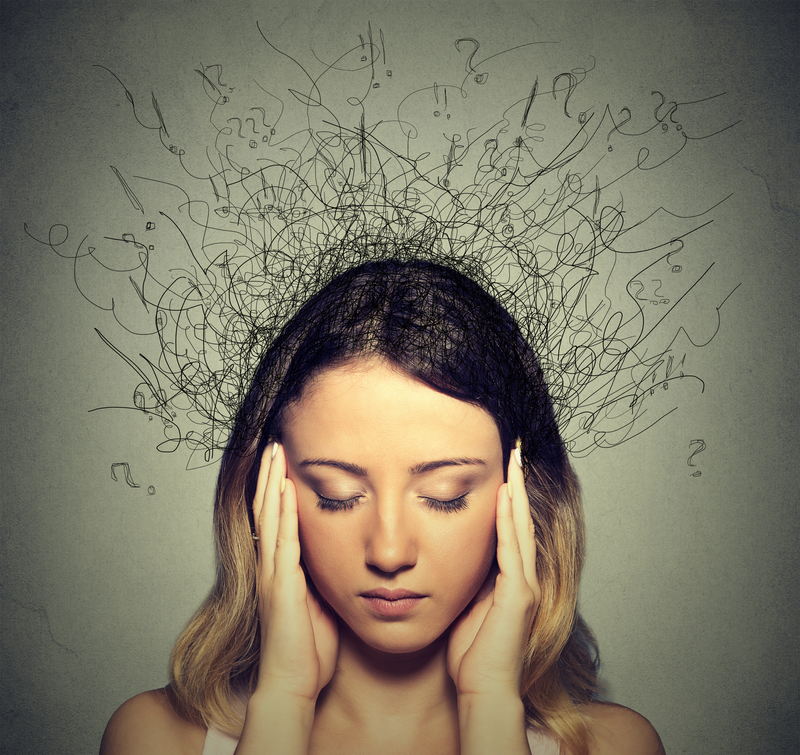 This is a wide range of subjectively painful conditions of lightheadedness, sudden increased sweating, rapid heartbeat, feeling of lack of air, dizziness, weakness, high or low blood pressure - i.e. obvious painful symptoms, which, along with anxiety, significantly burden the lives of such patients. However, the most important thing is that when examining this category of patients, doctors often do not detect symptoms of diseases in the body! It is precisely the state of anxiety that provokes such a vegetative storm.
This is a wide range of subjectively painful conditions of lightheadedness, sudden increased sweating, rapid heartbeat, feeling of lack of air, dizziness, weakness, high or low blood pressure - i.e. obvious painful symptoms, which, along with anxiety, significantly burden the lives of such patients. However, the most important thing is that when examining this category of patients, doctors often do not detect symptoms of diseases in the body! It is precisely the state of anxiety that provokes such a vegetative storm.
Cardiovascular diseases
For others, anxiety causes symptoms from the cardiovascular system: pain in the heart, tachycardia, shortness of breath, sudden sharp rises in blood pressure. Such patients first of all turn to a cardiologist and are disappointed when, during the examination, doctors do not reveal pathologies, but recommend contacting mental health specialists. There are also more severe cases when prolonged anxiety occurs in people with pre-existing diseases of the cardiovascular system - then increased anxiety leads to progression of existing diseases .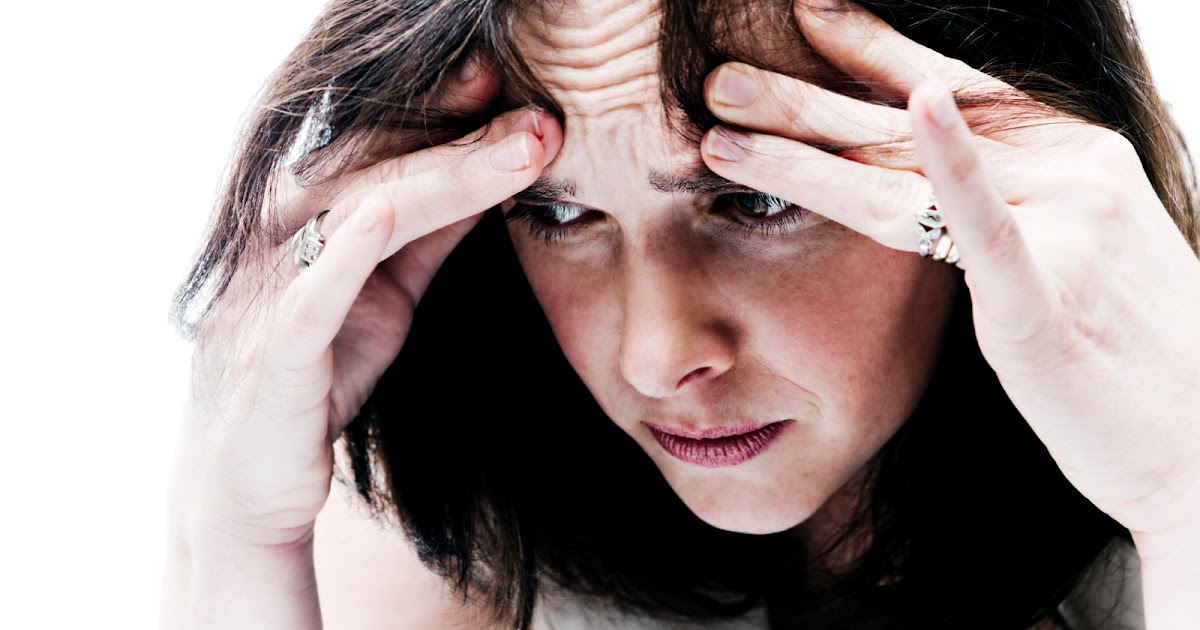 Modern research confirms that myocardial infarctions and strokes in people with anxiety disorders occur much more often. Moreover, the survival rate and recovery rate after these vascular accidents is much higher if such patients are prescribed sedative drugs and psychotherapeutic sessions in parallel with the main treatment.
Modern research confirms that myocardial infarctions and strokes in people with anxiety disorders occur much more often. Moreover, the survival rate and recovery rate after these vascular accidents is much higher if such patients are prescribed sedative drugs and psychotherapeutic sessions in parallel with the main treatment.
Digestive disorders
Long-term anxiety negatively affects the functioning of the digestive system. Disorders of the gastrointestinal tract in such situations are extremely diverse: ranging from difficulty in swallowing food, pain in various areas of the abdomen, lack of appetite, and vice versa, a feeling of constant hunger, nausea, up to neurogenic vomiting, bloating, seething, frequent urge to defecate, frequent loose stools (and, in the most delicate situations!), Or, conversely, persistent constipation. Among patients of gastroenterologists, up to half of patients with irritable bowel syndrome and other functional disorders of the digestive system need the help of mental health professionals. Moreover, in the initial stages - psychologists, and in more advanced cases - psychotherapists-psychiatrists. And those of them who received such help and solved the problem of anxiety, stop turning to gastroenterologists.
Moreover, in the initial stages - psychologists, and in more advanced cases - psychotherapists-psychiatrists. And those of them who received such help and solved the problem of anxiety, stop turning to gastroenterologists.
Sexual dysfunctions
A whole range of sexual disorders are closely associated with anxiety disorders. This and neurogenic erectile dysfunction in men, vaginismus and anorgasmia in women, decreased libido and pleasure from intimate intercourse. There may be discomfort, burning, pain, which doctors of this profile do not find the cause of, since in fact these symptoms are a consequence of somatoform anxiety disorder.
Skin problems
The negative effects of anxiety conditions affect the skin and hair. This is especially noted by cosmetologists and dermatovenereologists. The occurrence and exacerbation of skin diseases against the background of chronic stress is a long-known fact, and tranquilizers and other psychotropic drugs are often used in the treatment of such disorders.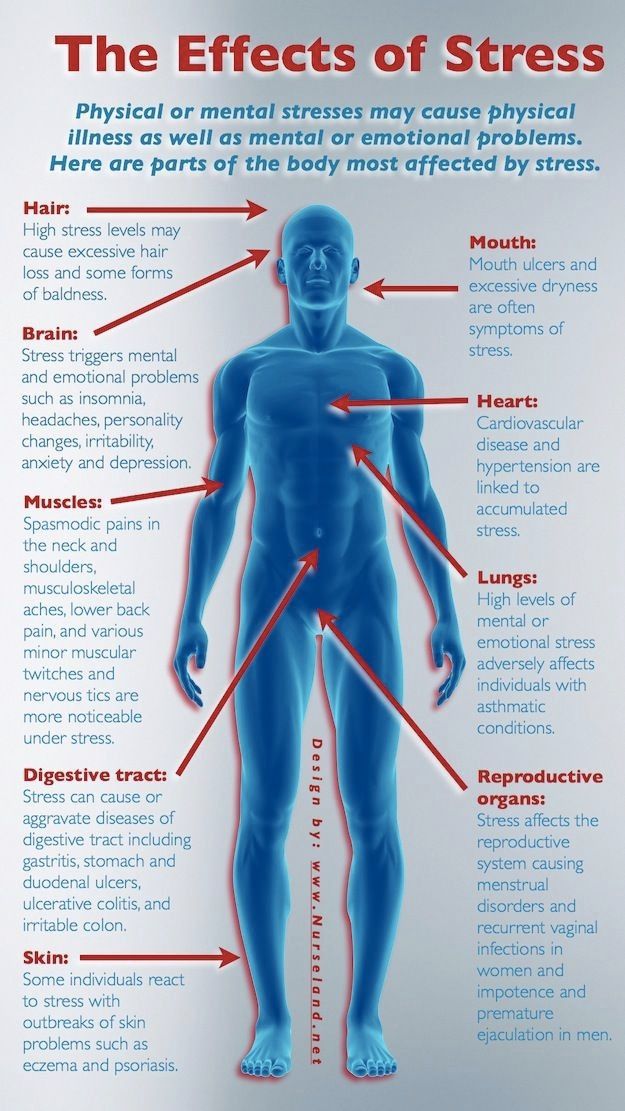 Neurogenic itching, increased hair loss, deterioration in hair quality, dull skin that has lost its elasticity are frequent companions of anxiety disorders.
Neurogenic itching, increased hair loss, deterioration in hair quality, dull skin that has lost its elasticity are frequent companions of anxiety disorders.
Immune exhaustion and cancer risks
With prolonged stress, changes occur in the state of the body's immune system. And the result of this can be various conditions, starting with incessant SARS (many of the frequently ill children are anxious children who are not adapted in the children's team), to the activation of chronic infections, chronic inflammatory processes. Any disease occurs in a more severe form, and recovery is much slower, because being in constant anxiety depletes the body and its resources to fight the disease. Moreover, malignant, tumor cells are formed in our body every day, but our “smart” immune system stands guard, scans the body and destroys potentially dangerous links, preventing the oncological disease from developing. Chronic suppression of the immune system is associated with increased cancer risk .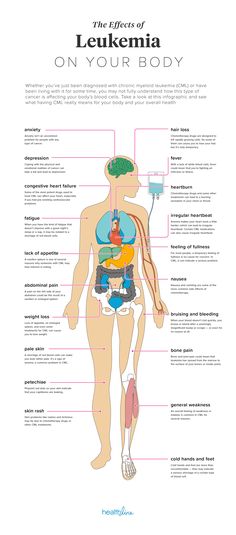
We have listed far from all the somatic disorders that can result from a long stay in a state of anxiety disorder. It is important to understand that anxiety is not harmless - it interferes with the work of the body's natural defenses, which leads to various failures. Thus, timely psychological help prevents the risks of a variety of disease conditions, protecting your health, time, effort and money spent on diagnosing and treating anxiety-related diseases.
Next time we will talk about the cases in which neglected anxiety transforms into a real threat to mental health and what to do so that the help of a psychiatrist is not useful in the future.
Anxiety is obvious: skin reaction to stress
54 566
AntistressHealth and beauty
Today it is customary to flaunt: I am so used to living in stress that I do not notice it. If so, then your skin may have a different opinion. Go to the mirror: dullness, wrinkles, tired look, rashes, itching. Of course, all this can be ignored and masterfully camouflaged. Fortunately, the makeup possibilities are endless. But here's the problem: once the usual tone can cause discomfort, and mascara - pain in the eyes. The effects of stress on the skin can be stronger than you think.
Of course, all this can be ignored and masterfully camouflaged. Fortunately, the makeup possibilities are endless. But here's the problem: once the usual tone can cause discomfort, and mascara - pain in the eyes. The effects of stress on the skin can be stronger than you think.
All our experiences are reflected on the face - this is not just a figure of speech. Skin cells and cells of the nervous system are formed from the same embryonic layer. In intrauterine development, a fertilized cell begins to develop in three directions. From the ectodermal sheet, bones, muscles and connective tissue are formed. From endodermal - internal organs. And from the mesodermal layer - the nervous system and skin. Allegorically, they can be called twins suffering in separation and exchanging "telegrams".
That is why all experiences and negative emotions have a depressing effect on the skin. The "bare" nerve endings that permeate the dermis send erratic impulses that disrupt blood circulation, cell function and sebum secretion.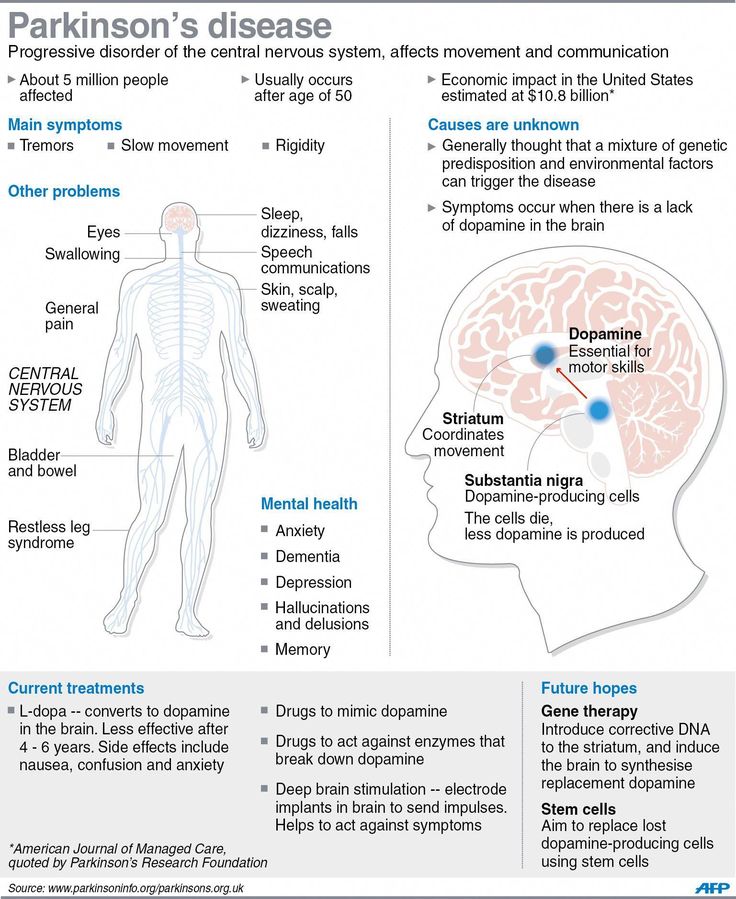 They can also trigger allergic reactions to seemingly familiar remedies. Or, on the contrary, to dull the vigilance of the skin, forcing it to skip harmful substances, increase moisture loss, and release pigmentation out of control.
They can also trigger allergic reactions to seemingly familiar remedies. Or, on the contrary, to dull the vigilance of the skin, forcing it to skip harmful substances, increase moisture loss, and release pigmentation out of control.
Changes in life - changes in the face
“I always had pimples,” recalls 30-year-old Maria. - But when I started working after the institute, there was no salvation from inflammation. It turned out that the nervous situation, the demanding boss and business trips were to blame. Then I got married, quit my job, started my own business and became an adept at yoga. As soon as everything calmed down in life, the appearance became normal again.
What has changed? The girl found harmony with herself, and the skin instantly reacted. But what if at the moment there is no way to find a safe haven? Try to adapt to the circumstances and level the effects of stress. After all, a great many options and means have been invented.
Heightened susceptibility
In relation to strong excitement, the skin behaves like a capricious child and uses the language that is available to it to scream about problems.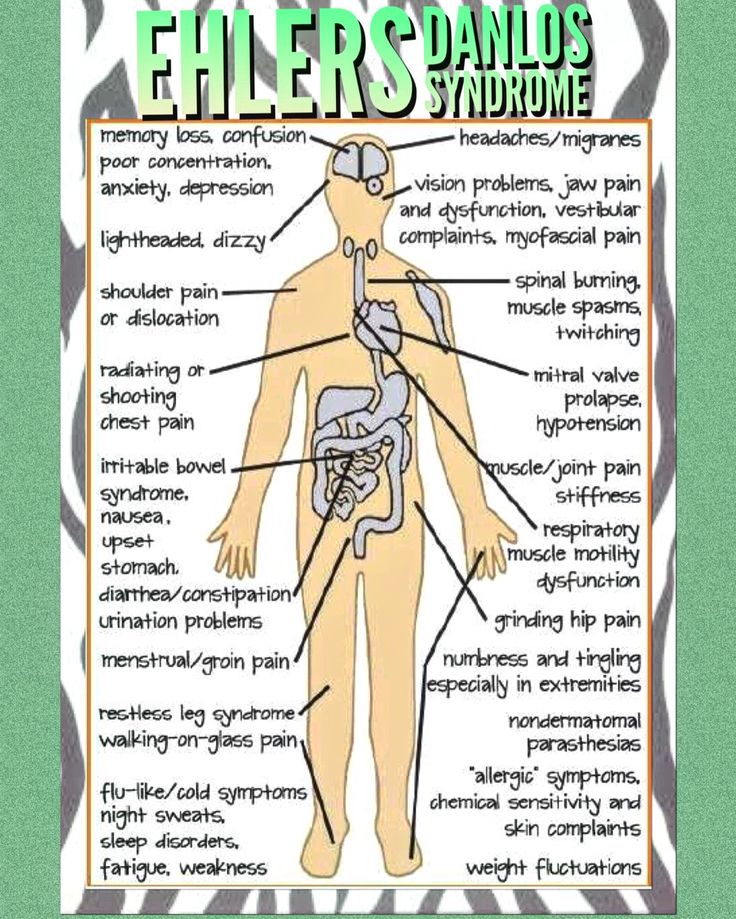 Therefore, acne, redness and dry zones appear. Even 100 years ago, a Swiss doctor with Russian roots, Nadia Payo, said that skin sensitivity is an increased susceptibility to the effects of physiological and emotional factors.
Therefore, acne, redness and dry zones appear. Even 100 years ago, a Swiss doctor with Russian roots, Nadia Payo, said that skin sensitivity is an increased susceptibility to the effects of physiological and emotional factors.
The word "stress" in those years has not yet become fashionable. At the same time, Nadia created her iconic cream Crème No. 2 according to a recipe that combines the achievements of phyto- and aromatherapy. This product, of course, improved, is still one of the best sellers of the Payot brand and still effectively soothes sensitive skin, relieving irritation and redness.
The most delicate face creams and masks
Relief products
Today's products that level the effects of skin stress have a different composition, but the goal is the same - to calm the nerve endings in the dermis and "persuade" it to function normally. For this, aromatherapy, targeted neuromolecules, plant extracts, and minerals are used. For example, magnesium and selenium ions perfectly relieve irritation.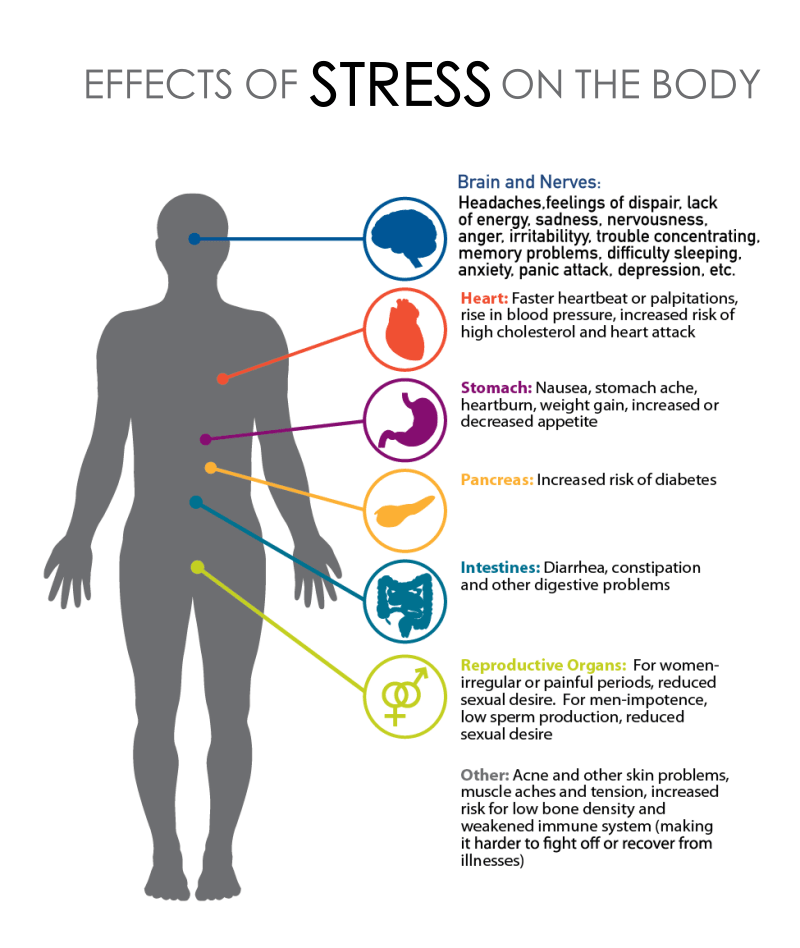 And recently it has been proven that a change in the microbiome, a set of microorganisms that live on the surface of the epidermis and perform, among other things, a protective function, also leads to increased sensitivity.
And recently it has been proven that a change in the microbiome, a set of microorganisms that live on the surface of the epidermis and perform, among other things, a protective function, also leads to increased sensitivity.
When the microflora changes under the influence of various factors (UV radiation, stress, hormones), the skin begins to react painfully to external influences and even to cosmetics. Therefore, some new products are designed to restore the balance of skin microflora. In addition, to ensure the microbiome is as comfortable as possible, refuse aggressive peels, alcohol lotions and do not test new products during periods of stress. Under normal circumstances, they may suit you. But when the skin is on the verge of a nervous breakdown, their powerful impact can be perceived as an invasion.
Reflection of repressed emotions
But sometimes the epidermis sends us signals, the meaning of which is not immediately clear. Jungian psychologist Ann Maguire believes that the skin is a kind of mirror that reflects any mental disorder.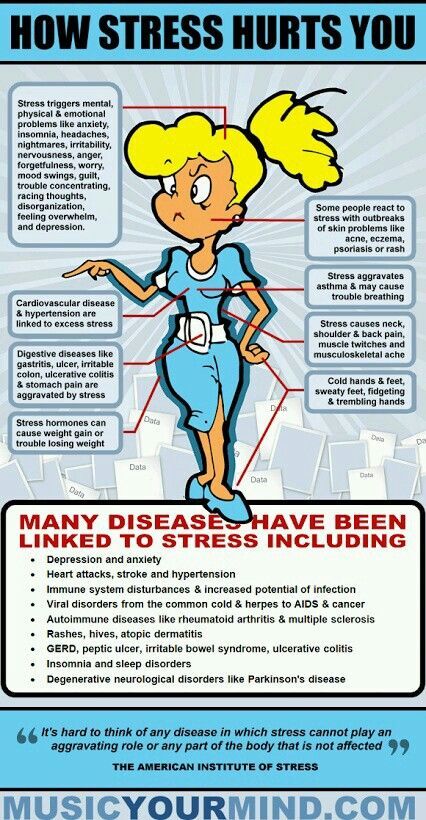 Fears, anxieties, repressed emotions, unconscious complexes - we literally constantly experience all this “on our own skin”.
Fears, anxieties, repressed emotions, unconscious complexes - we literally constantly experience all this “on our own skin”.
As an example, the psychologist told about two cases from private practice. A middle-aged woman suddenly developed an allergy to a perfume that she hadn't used in months. The expiration date was correct. It was a present of a beloved man, after a long relationship, he left her in an unworthy way. And now the skin has rejected his gift.
The second story about a girl who once held a high position in the fashion industry. Due to circumstances, she was forced to become a cashier in a cheap bar, communicate with tipsy people and drearily wait for the end of the working day. One day her hands became covered with eczema. It turned out to be an allergy to nickel, a metal found in coins. The skin of this woman rejected the work of the cashier, because she herself did not realize the stubbornness with which the psyche resisted the current occupation.
Complete relaxation
The skin knows what happiness is
An interesting fact: neurodermatological studies have shown that the skin, like the brain, can secrete endorphins, the so-called happiness hormones.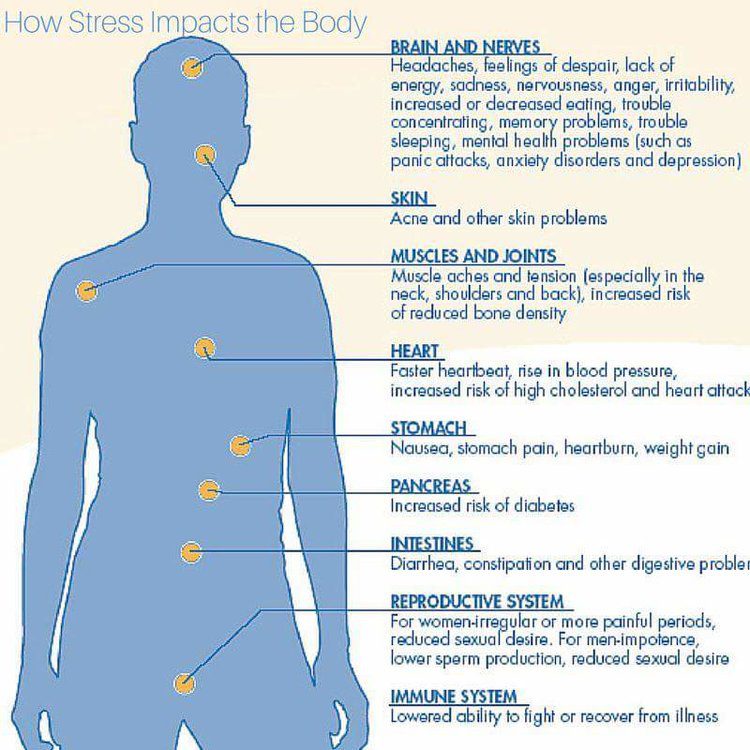 French neurophysiologist Laurent Misery explains: “These substances stimulate, on the one hand, the activity of the cells of the superficial layer of the skin, and on the other, the fibroblasts of the dermis, which are responsible for the production of its key fibers.”
French neurophysiologist Laurent Misery explains: “These substances stimulate, on the one hand, the activity of the cells of the superficial layer of the skin, and on the other, the fibroblasts of the dermis, which are responsible for the production of its key fibers.”
In other words, if we are pleased with the texture, aroma and sensations that a product gives, then these are not just emotions. The pleasure of the beauty ritual increases the effectiveness of the product. That is why today all manufacturers pay a lot of attention to the consistency, fragrance and design of products. So, the inspiration for the packaging of the new Essential Energy line, Shiseido, was ceramic raku cups, an integral part of the Japanese tea ceremony. The model for them was made of clay. The surface of each jar is warm, slightly rough, as if charged with positive energy.
How to help the skin?
First of all, pay more attention to your psycho-emotional state. Everyone has their own recipes.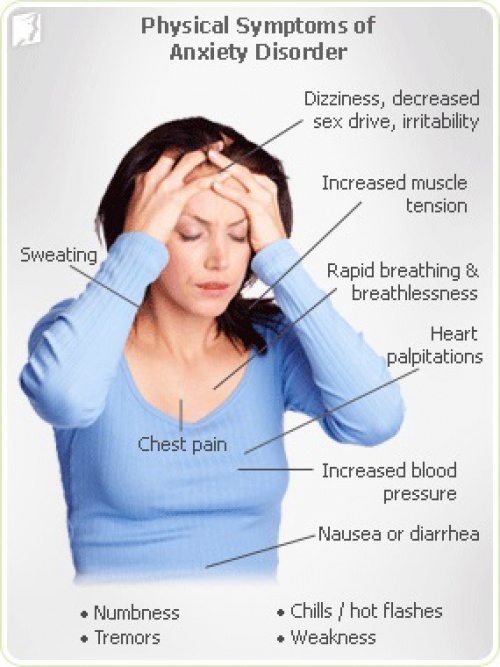 Yoga and meditation help someone, cooking classes and spa rituals help someone. Healthy sleep, physical activity, satisfaction in professional and personal life, healthy nutrition are very important. But even if these tips annoy you more than motivate you, at least try to change your skin care routine.
Yoga and meditation help someone, cooking classes and spa rituals help someone. Healthy sleep, physical activity, satisfaction in professional and personal life, healthy nutrition are very important. But even if these tips annoy you more than motivate you, at least try to change your skin care routine.
Choose a cream with a pleasant aroma, master a few self-massage passes, cleanse your face in several stages, secluded from the household. It is important to take care of yourself not on the run, somehow rubbing the funds with quick movements. In addition to improving the functioning of skin cells, your task is to give maximum pleasure to both her and the nervous system. After all, this is where anti-stress begins.
Singlely serums and fluids
Text: Maria Taranenko
New on the site
series "Shantharam": What is the film adaptation of one of the main bestsellers of 2010s
unpredictable rules “I am afraid to open up even to a psychotherapist.